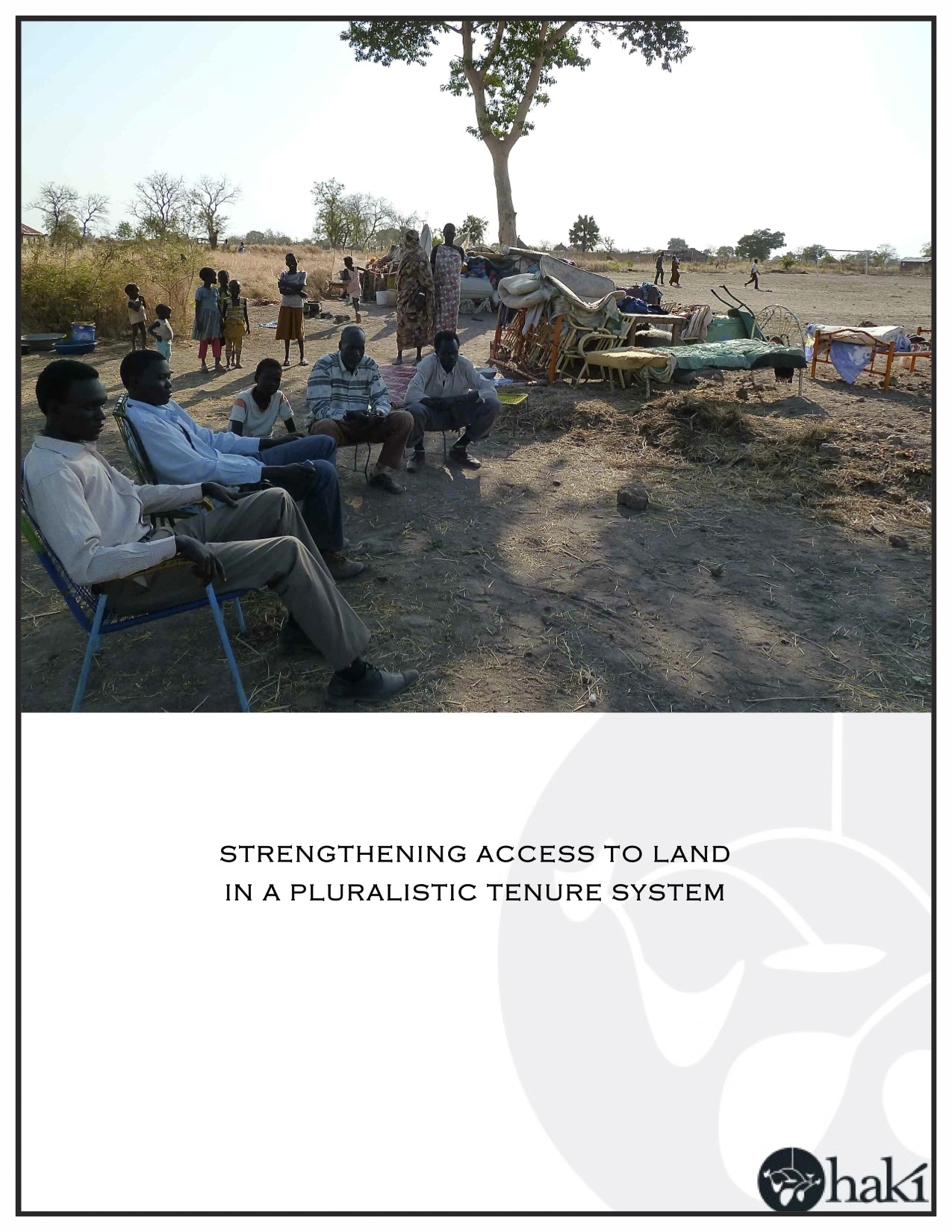Disturbing updates on the peace and rebuilding process in Northern Uganda. Customary land tenure systems weakened by the conflict are under even more pressure now with foreign and internal speculation. There is not a simple, formalized solution to this, but a need to employ an iterative process that informs and involves local citizens, working within the customary system to ensure rights.
Also, a good article from LPDI about land grabbing in Northern Uganda.
Land Grabbing in Uganda_Mabikke
UGANDA: Land disputes threaten northern peace
http://www.irinnews.org/Report/95322/UGANDA-Land-disputes-threaten-northern-peace
“Land is the only asset remaining for us”
GULU, 19 April 2012 (IRIN) – Inter-communal disputes over land and the allocation of land to private investors for cultivation, could threaten peace in parts of northern Uganda, warn officials.
So far in 2012, at least five people have been killed in violent land disputes in the villages of Lakang, Apar and Pabbo in the northern district of Amuru. Two more people were killed, in late 2011, in neighbouring Nwoya District.
At present, the Acholi and Langi communities in Pader District, also in the north, are in dispute over ancestral land in Pader‘s Acwinyo and Lamincwida villages. While the two communities are not armed, there has been traditional animosity between them.
Other reported land disputes in the region involve:
The Madi and Acholi communities in Adjumani and Amuru districts. Both claim ownership of the border areas of Apar and Joka in Pabbo sub-county and Alegu and Bibia in Atiak sub-county (the sub-counties of Pabbo and Atiak are in Amuru District);
The Acholi communities in Labala and Palwong in Pabbo sub-county (inter-clan land disputes);
The Alur of Nebbi District and the Acholi of Nwoya District over ownership of the areas of Got Opwoyo and Nyamokino;
The Langi of Oyam District and the Acholi of Nwoya District over the Lii area in Koch Goma sub-county, Nwoya District.
The resettlement of internally displaced persons (IDPs) in the Agoro, Lokung and Madi-Opei sub-counties of Lamwo District has also been hampered by land disputes.
These communities are part of an estimated 1.8 million people in northern Uganda who were forced into protected villages by the army; they began returning home in 2006 when the rebel Lord’s Resistance Army (LRA) moved into neighbouring countries.
But some of the returnees found their land, which they had presumed was lying idle, occupied by strangers, family members with no rights to the land, and people who left the protected villages before those with rights to the land.
With few if any possessions to start a new life, land has become a very prized and fiercely defended possession for the returnees, according to an April 2011 report entitled Escalating Land Grabbing In Post-conflict Regions of Northern Uganda: A Need for Strengthening Good Land Governance in Acholi Region.
Acholi Region comprises the districts of Agago, Amuru, Gulu, Kitgum, Lamwo, Nwoya and Pader.
Uncertain boundary demarcations such as trees and stone markers, which may have been lost or shifted over the years of conflict, have exacerbated land disputes, as has the presence of a youthful regional population with an estimated median age of 14 for females and 13 for males, the report said.
“Most of the elders who knew about the land died in IDP camps. The remaining ones have become liars. They can’t show the boundaries,” Francis Okot, a resident of Otwee village in Amuru District, told IRIN.
Land-tenure system
Land in northern Uganda is held under customary tenure. The lack of official land ownership documents is one of the reasons people fear losing their land.
The government is currently issuing customary ownership certificates in parts of the region; but this is drawing mixed reactions.
“It might go a long way to address the land conflicts as long as it’s properly done. It could be a mitigating measure to the land issue in the region,” said Howard Ayo, a Kitgum resident.
According to Godfrey Akena, Pader District Council chairperson, “the issuance of land certificates is good but not timely… Let the government wait with their certificates until when everything is OK and people are no longer talking about land disputes.”
According to analysts, statutory and customary land laws contain ambiguities. Earlier laws, for example, gave landowners with 12 or more years occupancy legitimate rights over the land. During the civil war this allowed some powerful individuals to claim legitimate rights over some communal land.
Uganda’s National Land Policy, which was drafted following the setting up of a National Land Policy Working Group in 2011 to deliver a framework guiding land use in national development, provides for the setting up of a customary land registry to support the registration of land rights under customary tenure and to issue Certificates of Title of Customary Ownership, giving rights equal to freehold tenure.
But it is yet to pass into law. “The last draft we have in [is] as of March 2011. However, one year later, it has not been passed yet. A lot of developments that would be addressed by the policy continue to occur unguided and at a whirlwind speed,” Deo Tumusiime, Uganda Land Alliance’s communication officer, told IRIN.
“We believe that when passed into law, the policy will help to address a number of questions, some of which have led to bloodshed – questions of land inheritance, inconsistencies arising from colonial mistakes, women and land, minorities, land administration, compulsory acquisition, and lately the vice of land-grabbing…
“For a key resource like land, which is a question of life and death for many, you cannot afford to politicize it. The policy must apply to all citizens irrespective of political, religious or socio-economic background, but taking into consideration the peculiar interests of the voiceless Ugandans.”
Investors seek land
Against this background, the allocation of land in parts of northern Uganda to investors has exacerbated residents’ fears of land-grabbing. Some of the fears may be genuine while others are fuelled by politicians, analysts say.
“People… think the government wants to grab land. It’s going to be [a] hindrance to development if the land issue is not addressed,” said Betty Bigombe, Uganda’s water minister and a former negotiator with the LRA.
Bigombe warned that failure to address the land disputes could lead to “another conflict like [the one with] the LRA. People will be pitted against each other”.
Already, some politicians in Amuru are already asking residents there to resist government planned land allocation to investors for sugarcane cultivation.
“We shall mobilize our people to fight for our land. Land is the only asset remaining for us, the Acholi. We shall guard it jealously,” Gilbert Olanya, the legislator of Kilak in Amuru District, told IRIN.
Experts are recommending that a more secure land tenure system is created in northern Uganda, complementing customary tenure.
With unclear land rights among former IDPs a major source of tension, the Acholi land-grabbing report further recommends that “the two parallel legal and judicial systems [customary and state land administration] dealing with land issues in northern Uganda should be harmonized to avoid unresolved contradictions.”
“War is over, but factors remain that could threaten progress, such as economic disparity, land tenure irregularities, high levels of unemployed youth and disenfranchized population, as well as high expectations regarding peace dividends,” said Rebeca Grynspan, the UN Development Programme’s associate administrator, during a recent conference in Gulu.




